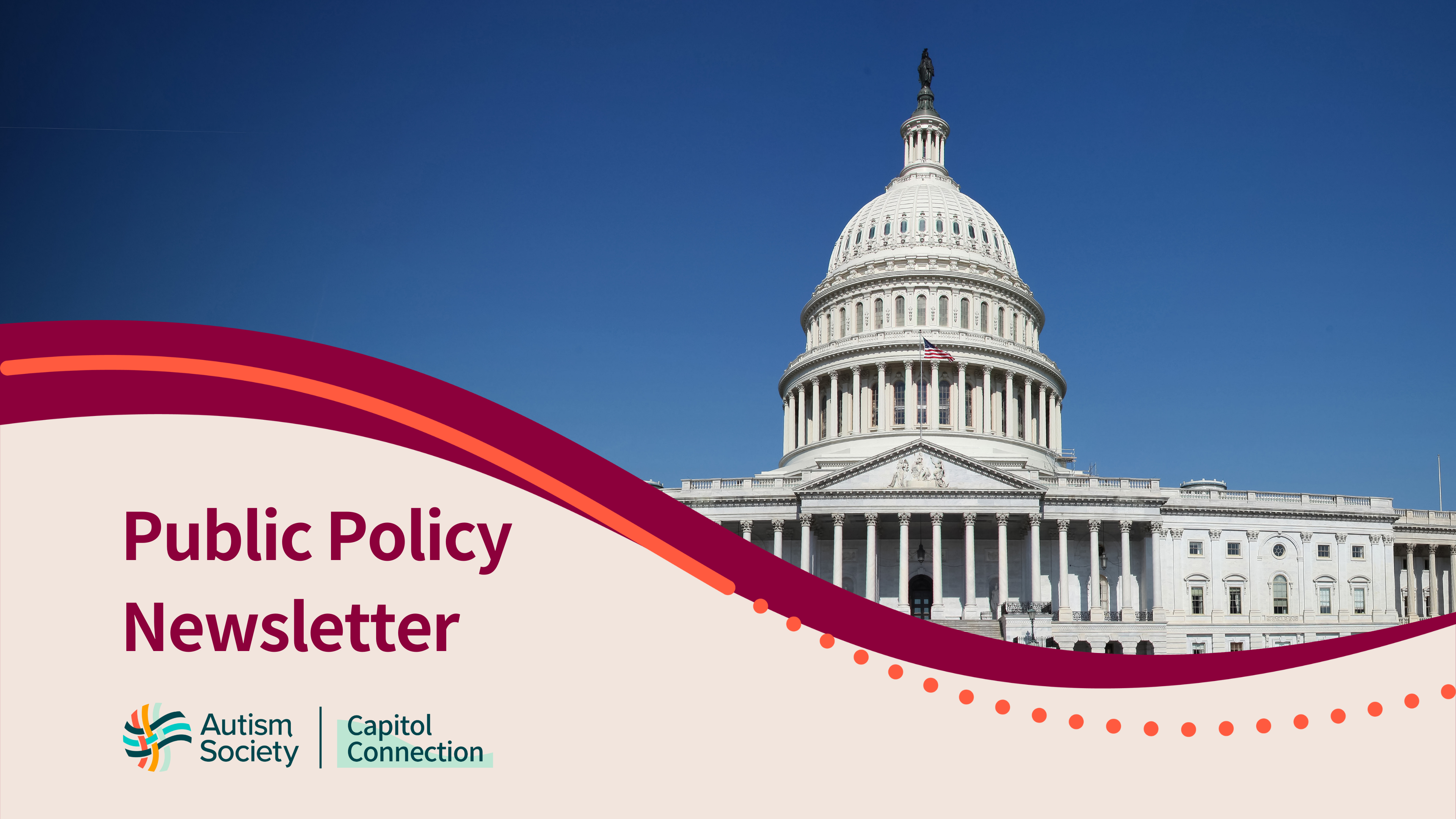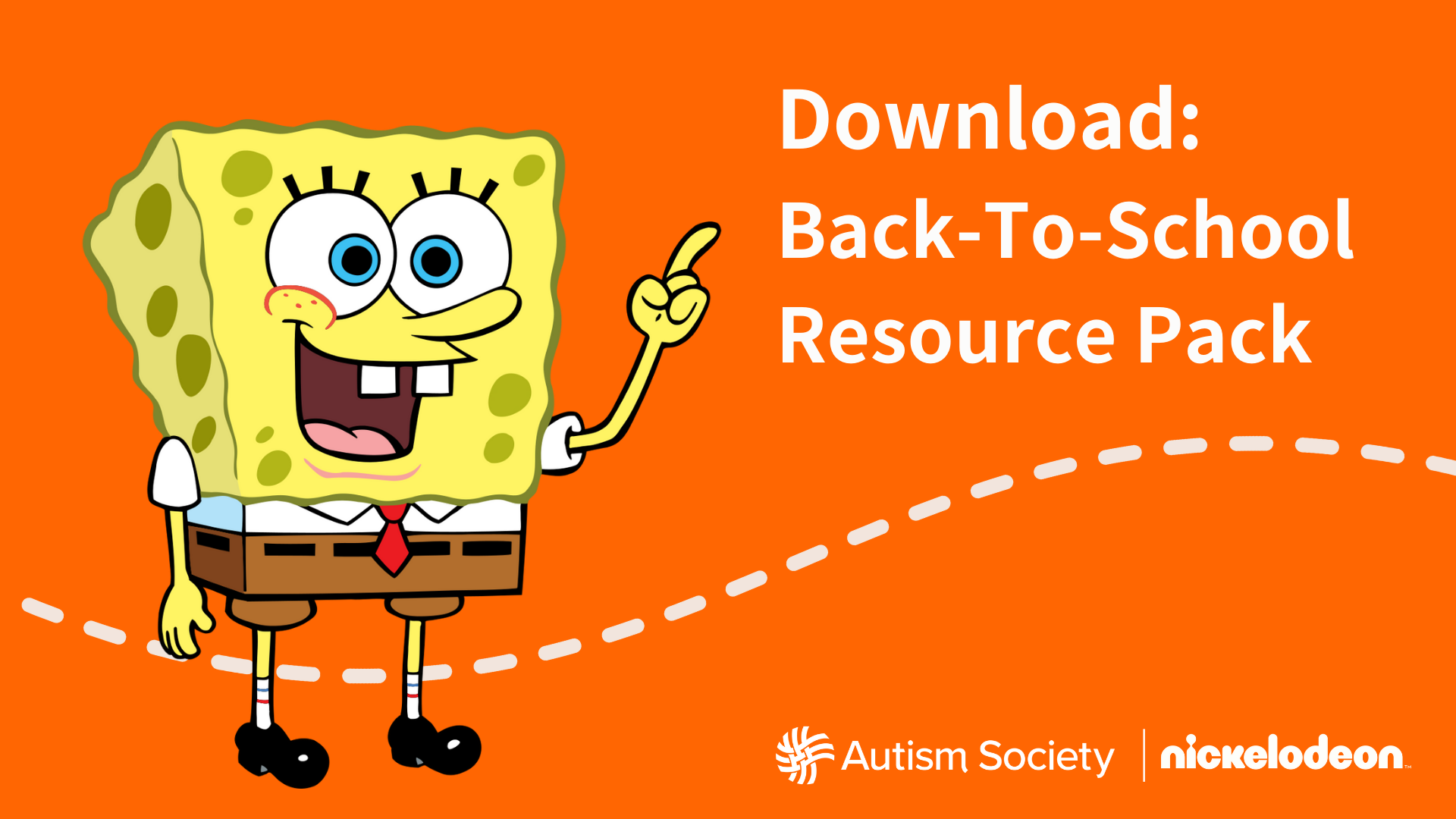
In this issue of Capitol Connection, new legislation related to Autism caregiving and Social Security are discussed as well as links to a Social Security hearing. Also, find information on the new Department of Education summit, a proposal to update civil rights protections and much more. Continue to use our newly updated action center to monitor key legislation and send letters to educate legislators.
Savings Penalty Elimination Act
On May 3th, U.S. Senators Rob Portman (R-OH) and Sherrod Brown (D-OH) announced the introduction of the bipartisan Savings Penalty Elimination Act (S. 4102) to update the asset limits for Supplemental Security Income (SSI) beneficiaries. The legislation raises asset limits under SSI to $10,000 for individuals and $20,000 for married couples. Currently, under SSI, individuals can only have $2,000 in assets and married couples are limited to $3,000. It is critical to raise this to allow more economic freedom for those in need of SSI and Medicaid. Please use our action alert to urge your Senators to cosponsor this bipartisan bill. Please consider editing the sample letter to add personal stories on why this bill is so critical. The Autism Society signed on to the CCD Social Security Task Force letter in support of this bill.
Social Security Hearing
Related to Social Security reforms, the House Ways and Means Social Security Subcommittee held a hearing on Tuesday on improving the Social Security Administration’s (SSA) customer service. Bethany Lilly, Senior Director of Policy at The Arc provided testimony on behalf of the CCD Social Security Task Force, of which the Autism Society is a member. In her testimony, Ms. Lilly discussed how customer service has been underfunded since 2010, leading to inaccessibility. It is extremely difficult to navigate the process to qualify for social security and would be much easier if customer service was there to assist, as these benefits are crucial for so many people. In addition, due to the underfunding of the Administration, many stories of wrong payments, requests for backpay or paying back, and backlogs exist, creating additional unnecessary stress. To resolve this issue, Ms. Lilly suggests increasing funding levels to a more adequate amount as well as resolving some issues relating to the website, streamlining applications and forms, improving data collection, eliminating work disincentives, and eliminating waiting periods. Watch the entire hearing on the committee website.
Family Support
Autism Family Caregivers Act
On May 13, Senators Bob Menendez (D-NJ) and Susan Collins (R-ME) introduced bipartisan, bicameral legislation that would provide Autism families the support and training needed to provide quality support to their children. The Autism Family Caregivers Act establishes a five-year caregiver skills pilot program to award grants to nonprofits, community health centers or hospitals to provide skills training to family caregivers of children with Autism. The training will teach family caregivers how to use everyday routines and home activities to improve the mental and physical well-being of such children and their caregivers. Caregivers will be trained to address communication skills, daily living skills, social engagement and behavior management. The grants will provide for 25 pilot programs in at least 15 states. The Autism Society’s statement was included in the statement of Senators Menendez and Collins upon introduction.
Supporting Families Summit
On May 3-4, the Autism Society participated in a national family support summit supported by the U.S. HHS Administration for Community Living. The summit gathered approximately 100 leaders to develop strategies and develop policy recommendations to support families with disabilities. The group celebrated achievements since the 2012 Wingspread Family Support Summit and developed ideas on how to best weave strategies into current national initiatives. The recommendations will be published and shared later this year.
Education
FBA Listening Session
The Autism Society participated in a listening session with the US Department of Education Office on Special Education Programs last week. The purpose of this meeting was to gather input on how the Department can help ensure that Functional Behavioral Assessments (FBA) are working as intended in schools. An FBA is an evaluation to see why a student might be struggling. If done properly, an FBA should help schools understand how to best help students succeed. ED plans to provide additional guidance and oversight regarding these evaluations. The Autism Society will share the guidance when it is published. The Department’s next listening session is entitled “Recovery to Thriving: Supporting Mental Health & Students With Disabilities” and will be held on May 23, 2022.
Education Summit
On May 23, the U.S. Department of Education is holding a virtual half-day summit, Recovery to Thriving: Supporting Mental Health & Students with Disabilities. The summit will highlight steps schools, colleges and communities can take to support students with disabilities and students with mental health needs. ED Secretary Miguel Cardona, Senator Bob Casey (D-PA), and Rep. Bobby Scott are among the summit keynote speakers. The discussion includes how states can use federal relief funds to support students with disabilities. Interested individuals can register here.
Section 504 Update
Included in the ED forum will be information on a recent announcement by the Department of Education Office for Civil Rights (OCR) for plans to gather public input on possible amendments to Section 504 of the Rehabilitation Act of 1973. Section 504 prohibits discrimination on the basis of disability in public and private programs and activities that receive federal financial assistance, including schools and postsecondary institutions, the landmark law that served as the foundation for many provisions of the Americans with Disabilities Act. The Department will solicit public comments to help decide how best to improve current regulations to assist America’s students with disabilities. The Autism Society will respond to the request. Please send any recommendations you may have to kmusheno@autism-society.org.
Medicaid Rule
On May 12, the Centers for Medicare & Medicaid Services (CMS) released the Reassignment of Medicaid Provider Claims Final Rule. This rule affirms the state’s ability to make payments to third parties on behalf of an individual Medicaid practitioner for whom Medicaid is their primary source of revenue, for health insurance, skills training, and other benefits customary for employees, if the practitioner has consented to such payments.
Provision to Ban Electric Shocks
The House of Representatives is taking up the Food and Drug Amendments of 2022 in this week. This bill includes a provision (Sec. 810) to ban the use of electrical stimulation devices (ESDs) that apply an electrical stimulus to a person’s skin for use in behavior modification.
The only known center that still uses this device is the Judge Rotenberg Educational Center in Massachusetts. The Autism Society of America released a statement urging the House Energy and Commerce Committee to pass the FDA Amendments Act with the provision to ban these devices. We will continue to monitor this legislation.
State Advocacy
ARP Funding
The Administration for Community Living (ACL) published a new Fact Sheet outlining resources and state examples of how to use American Rescue Plan (ARP) funding to promote and support competitive integrated employment for people with disabilities. Recall that the American Rescue Plan provided states with a temporary 10% increase in federal funding to expand or strengthen home and community-based services (HCBS) under the Medicaid program. The increase in the Federal Medical Assistance Percentage (FMAP), an estimated $12.7 billion, offers states with flexibility to provide all types of home and community-based services, including employment. This fact sheet includes state examples and resources to support those partnerships and facilitate sharing of information across states.
Money Follows the Person Issue Brief
The Community Living Policy Center has published an issue brief outlining how the Money Follow the Person Program (MFP) is positively impacting people with disabilities who wish to live in the community or transition out of an institution. The MFP funds also help communities by helping communities to make systemic changes that support community living. here is $110 million available from the federal government to support any of the 20+ states and territories that want to start MFP programs. This resource can be used in state advocacy efforts to apply for and use this funding to help people with Autism and other developmental disabilities transition to
COVID News
On May 17, Federal regulators authorized a COVID-19 booster shot for school-aged children, making a third shot of the Pfizer-BioNTech vaccine available to 5-to-11-year-olds as cases rise nationally.
In addition, on May 17, the Biden Administration announced that U.S. households are now able to order an additional eight free at-home tests at COVIDTests.gov. As the highly transmissible sub-variants of Omicron drive a rise in cases in parts of the country, free and accessible tests will help slow the spread of the virus. People who have difficulty accessing the internet or need additional support placing an order can call 1-800-232-0233 (TTY 1-888-720-7489) to get help in English, Spanish, and more than 150 other languages—8am to midnight ET, 7 days a week. For more information, people can visit: https://www.covid.gov/tests/faq.
Passing of Julie Beckett
The Autism Society is saddened to learn of the May 13 passing of Julie Beckett, a long time advocate for home and community-based services and supports. Beckett was the mother of Katie Beckett, for whom President Reagan made a one time exception to the Medicaid Rule to allow her to come home from the hospital. The change ultimately led to the Medicaid waiver that allows families to care for their children at home instead of a hospital or other institution with supports. Millions of families have since benefited from Becketts’ advocacy. See more of the story in this 2010 NPR story.
Share:




